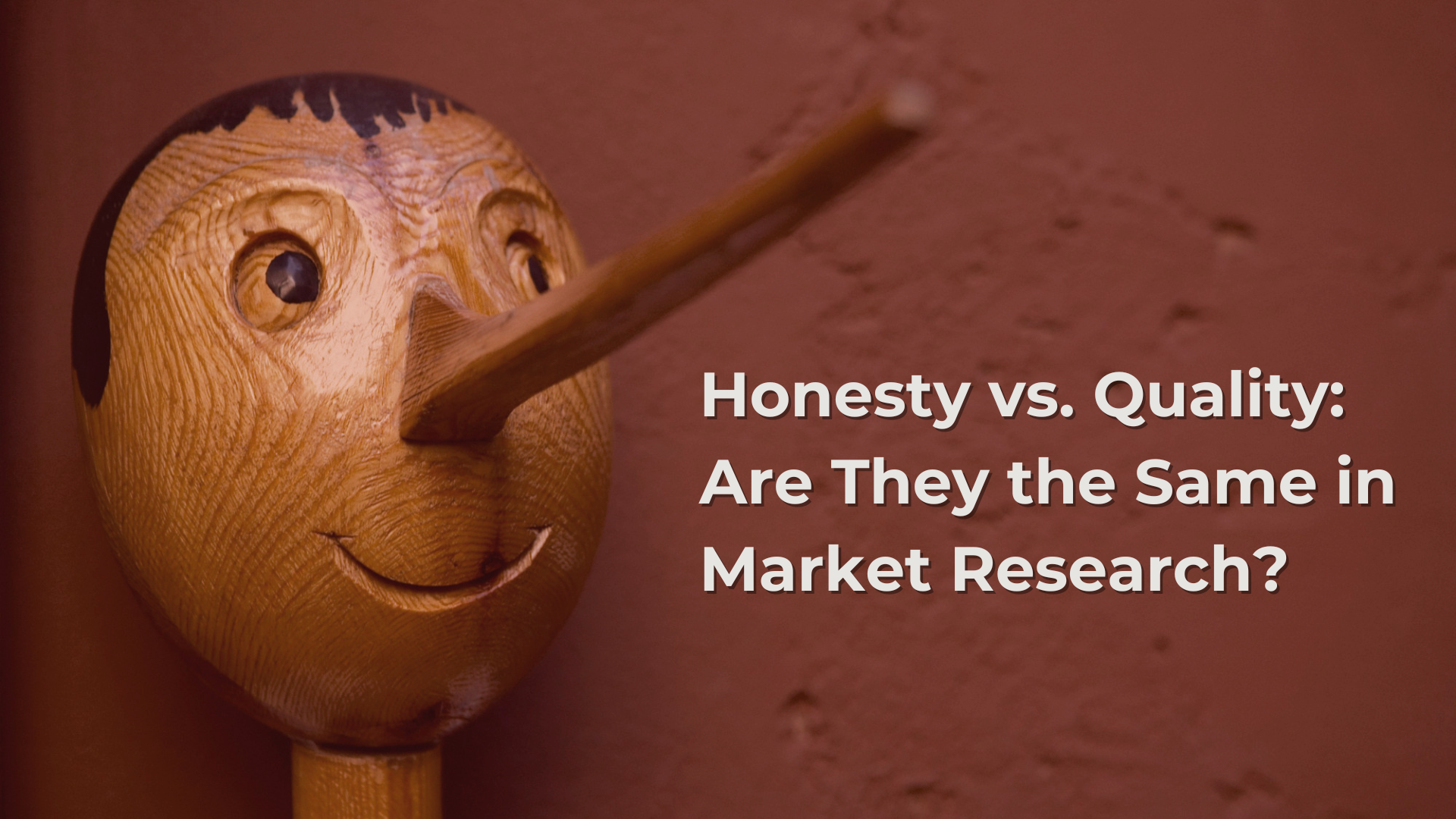Written by Jeremy Engelin:
With market research studies, nearly everyone would agree that honest responses are essential. If we can’t trust the data, we can’t trust the insights. But is honesty alone enough? When we think about the best responses, the ones that feel the most valuable, they’re not just truthful—they’re also engaged, thoughtful, and rich with context.
 Here’s where things get interesting: Some of the most engaging people we know—the ones who tell the best stories, who captivate an audience—also tend to embellish a little. That 14-pound fish? Maybe it was really 10 pounds, but the story wouldn’t be the same without a little stretch of the truth. So where do we draw the line between engagement and accuracy?
Here’s where things get interesting: Some of the most engaging people we know—the ones who tell the best stories, who captivate an audience—also tend to embellish a little. That 14-pound fish? Maybe it was really 10 pounds, but the story wouldn’t be the same without a little stretch of the truth. So where do we draw the line between engagement and accuracy?
For many of our clients, quality is about the right mix of engagement and honesty. They don’t just want respondents to check the right boxes; they want thoughtful, nuanced answers that reflect real human experiences and interests. But in an industry where incentives, survey fatigue, recruitment sources, and digital behaviors all influence responses, how do we ensure that we’re capturing authentic engagement—without losing sight of truth?
At Research Results, this is the question we set out to answer. And it was the driving force behind the initial development of RADAR (Respondent Analysis & Data Anomaly Recognition)—our NEW approach to detecting, preventing, and mitigating data anomalies – more to come on this later. But technology alone is never the answer. The real challenge is defining quality in a way that aligns with the expectations of researchers, clients, and respondents alike.
So, we want to hear from you:
- Is honesty enough, or does quality require something more?
- Where should we draw the line between engagement and accuracy?
- How do you define quality in your research?
Let’s start the conversation.
